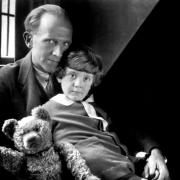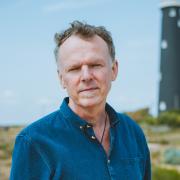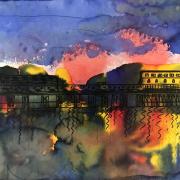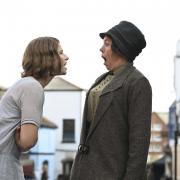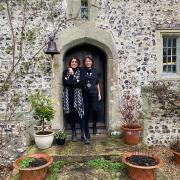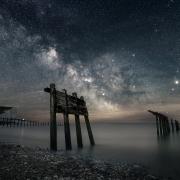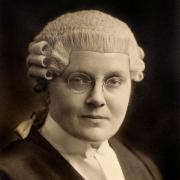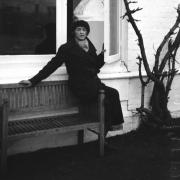Local paper condemnation and a threatened council injunction couldn’t stop Worthing’s first underground rock festival

“Everybody who had anything to do with Phun City – whether they went there, helped arrange it or opposed it – it changed their life. It was a communal experience.”
So says Gez Cox, one of two former Worthing High School boys who helped set up the south’s first free music festival in their former hometown 50 years ago this month.
In the lead-up to the free event the Worthing Herald ran stories warning of a “pop festival invasion” on Ecclesden Common – an open stretch of land opposite the Fox Inn in Patching now occupied by the A27 dual carriageway. There were predictions that 20,000 drug-taking hippies would invade the quiet coastal resort.
Hippies did set up camp in the woods surrounding the festival site, on one occasion bonding together to help move the stage 100 yards when it was set up in the wrong location. Gez, now living in Marin County, 40 miles north of San Francisco, admits there was drug-taking. But the numbers of revellers descending between 24 and 26 July

1970 only totalled 10,000 at most – with caterer Mr A Carter complaining to one local paper that he’d had to throw away 400 packs of his salmon and chicken sandwiches.
In his 2002 autobiography Give the Anarchist A Cigarette, Gez’s old schoolmate Mick Farren, once leader of the band The Deviants and editor of International Times (IT), describes the night the festival was born in his Maida Vale flat: “Our assets totalled a half-finished bottle of vodka, an almost untouched quid deal and two and ninepence in cash.
‘Is that enough to launch a rock festival?’ We all looked at each other and shrugged. No one had told us it wasn’t, so what the hell?”
“Mick would spout ideas that the rest of us might pick up on,” recalls Gez 50 years on. “My function was to get things done.” Gez had just hooked up with Mick again after spending time as “a very corporate person” in Australia. “It radically changed my life,” he says now. “We were all members of [anti-racist political collective] the White Panther Party, and spent every day producing IT. We never had enough money.”

Originally Phun City was to be a ticketed event in aid of IT – bands advertised included Free, The Pretty Things and Mungo Jerry with Detroit legends MC5 headlining the Saturday night. Despite Gez donning a suit and tying his long hair back to meet county councillors and police, the threat of an injunction from West Sussex Council led the festival’s original financial backers to withdraw. The organisers turned to Radio Caroline founder Ronan O’Rahilly for support. Ronan, who died earlier this year, paid the initial costs, on condition that the event should be free. The field was rented from a local landowner, Mr FitzRoy Somerset, who Gez and Mick had once worked for as pheasant beaters.
Lancing-based music promoter Ian Grant was 20 when he called IT to offer his services as a local contact. “We didn’t have any mobile phones – we communicated by call box,” he remembers. “We rented a house in Arundel Road from the guy who owned the land, which became our base. The Fox pub was our other base.
It wasn’t organised like anything today. The toilets weren’t completed until Saturday or Sunday morning.”
Gez recalls spending the week before the festival in a haze because of the amount of responsibility he was taking on. “The only people who did get paid were the stage lighting and sound guys,” he says. He remembers some generous local people though. “One old colonel who lived in the village paid the bond so we could have water. He said it was wonderful to see all these young people having a great time.”

Landowner Fitzroy Somerset’s daughter Annabel Smyth shared her memories of the event with the website ukrockfestivals.com: “My father, Mr FitzRoy Somerset, took a lot of stick from the vicar, and some of the villagers for having allowed it to be held on his land. The vicar never forgave him, and went on about it until the day he retired. We were only kids then, too young to be allowed to attend the festival properly, but my father took us there and allowed us to wander about a bit, and enjoy ourselves.”
According to Gez, MC5 agreed to play their first European show at Phun City if they could be flown to the UK in the top deck bubble of one of the new 747 planes. They walked away out of pocket, but of all the bands ironically only Free refused to play their Friday night headline slot. Lower down the bill on the Saturday was a little-known Scottish band called The Humblebums – made up of songwriter Gerry Rafferty and a certain Glaswegian former welder. “About 20 years ago I was in Glasgow with Big Country staying at the Holiday Inn and Billy Connolly walked into the bar,” recalls Ian. “I said Phun City, and he almost fell off his seat – he had never heard anyone mention Phun City since the festival.
“A lot of the bands who played were a big influence on the punk movement. At Phun City The Pink Fairies took all their clothes off on stage. I’ve seen lots of great live bands, Jimi Hendrix and The Who, but MC5 were their equal.” There was also a sci-fi line-up, which included Beat legend William S Burroughs and JG Ballard. Another science fiction writer, who later penned classics The Prestige and Inverted World, happened to be in the audience – Christopher Priest. He had travelled down from Croydon with former BBC cameraman Dicky Howett on the Saturday. Today Dicky says he and Christopher are proof that the festival wasn’t just filled with hippies: “Christopher and I and our wives were dressed rather conservatively – although it was still casual clothes. It wasn’t anything like the Isle of Wight Festival, it felt very homemade.”
The only ready money for the festival came from British Lion, who Ronan had hired to film the proceedings. Dicky – whose business Golden Age TV hires vintage cameras and microphones to film and TV shoots including Stan and Ollie and Call the Midwife – took pictures of the then ground-breaking cameras being used. The film of the festival has never been released, although Ian believes the original tapes may have recently resurfaced through 1960s DJ and promoter Jeff Dexter. A bootleg audio recording of the MC5’s Phun City performance was released in 1996 on Sonic Records.
Mick’s book details some of the craziness going on that weekend including a looted bar tent courtesy of the Hell’s Angels. According to Gez the local police left the festival to its fate when they discovered Hell’s Angels were going to provide security. He believes they may have been one of the few beneficiaries of the festival, having taken cash donations from festivalgoers and kept them rather than passing them on. Ian remembers a trip to an Angmering shop with the motorcycle gang to load up on supplies. “They all streamed into the shop, filled their trolleys with bread, eggs and baked beans and just walked out with them!”
Gez’s happiest memory of the event was with Mick in a tower built by a “mad architect” who was originally going to paint luminescent streets all over the festival site until the money ran out. “Micky was really bummed out – saying how it had been a failure,” says Gez. “He thought Phun City was going to be the start of some kind of revolution in England, but nothing was working. I said to him: ‘Look around at all these people, stoned out of their minds listening to loud rock and roll music. They are having fun. On that level this is a huge success’. Nobody had ever seen anything like this in Worthing.” His mother wasn’t so happy with Gez when he brought some of his friends home that weekend and they ate the cold turkey his family had been saving for their Sunday lunch.
According to Mick’s book a stage invasion of more than 100 people during Mungo Jerry’s closing Sunday night set destroyed the stage. The clean-up efforts were halted on Monday when the local police swooped.
Gez believes it was due to the festival not paying the second half of the rent money for the field, but it could equally have been down to the community of hippies who had decided to set up camp in Worthing until the Isle of Wight Festival later that summer. “We were told by the police that we were subject to arrest,” recalls Gez. “I jumped on a log and said: ‘Brothers and sisters, the oppressive pigs have come again’. Fortunately a much more sensible friend said: ‘Leave it out – let’s just go’.”
Ian wasn’t so lucky. He was at the house in Arundel Road and was arrested – the rest of the organisers were at The Fox pub, and cleared out as soon as they heard the police has arrived. “I was fined £30 for possession of cannabis,” he laughs. “Mick Farren came to bail me out.”
Gez continued to work with IT and Mick for a few years, and was involved in the newspaper’s obscenity trial victory for its comic book Nasty Tales. He moved to the US in 1976 to focus on publishing, but kept in touch with Mick. “I last remember going to see him doing a book reading at a revolutionary bookshop in San Francisco,” says Gez. “He never lost the faith – he looked at the world and realised there was enough for everybody, but people were stopping others from getting their fair share. We weren’t hippies – we were revolutionaries.” Mick died
on stage at London’s Borderline in 2013 at the age of 69 while performing with a reformed line-up of his band The Deviants.
Ian believes Phun City did change his life for the better. He decided to get involved in music after seeing Cream and The Who play Brighton Dome in 1967, but Phun City saw him make the leap from putting on shows around Worthing to managing the likes of The Stranglers and The Cult. Ian now lives in South Godstone, near East Grinstead, but still comes down to Worthing. Until the lockdown he had been planning
a 50th anniversary concert in Beach House Park. “I was only 19 or 20 – it was so much fun to be involved in it with these big boys from London,” he says.
“Worthing was such an old people’s town, but this happened on my doorstep. Phun City became a stepping stone to meeting people in London and being able to do this as a career. I went on a 45-year jaunt around the world managing bands and doing some PR, starting with The Stranglers who I met in Chiddingfold in 1975.
“As an event Phun City was a big disaster – but as a moment in time it was one of the best experiences I have ever had.”




